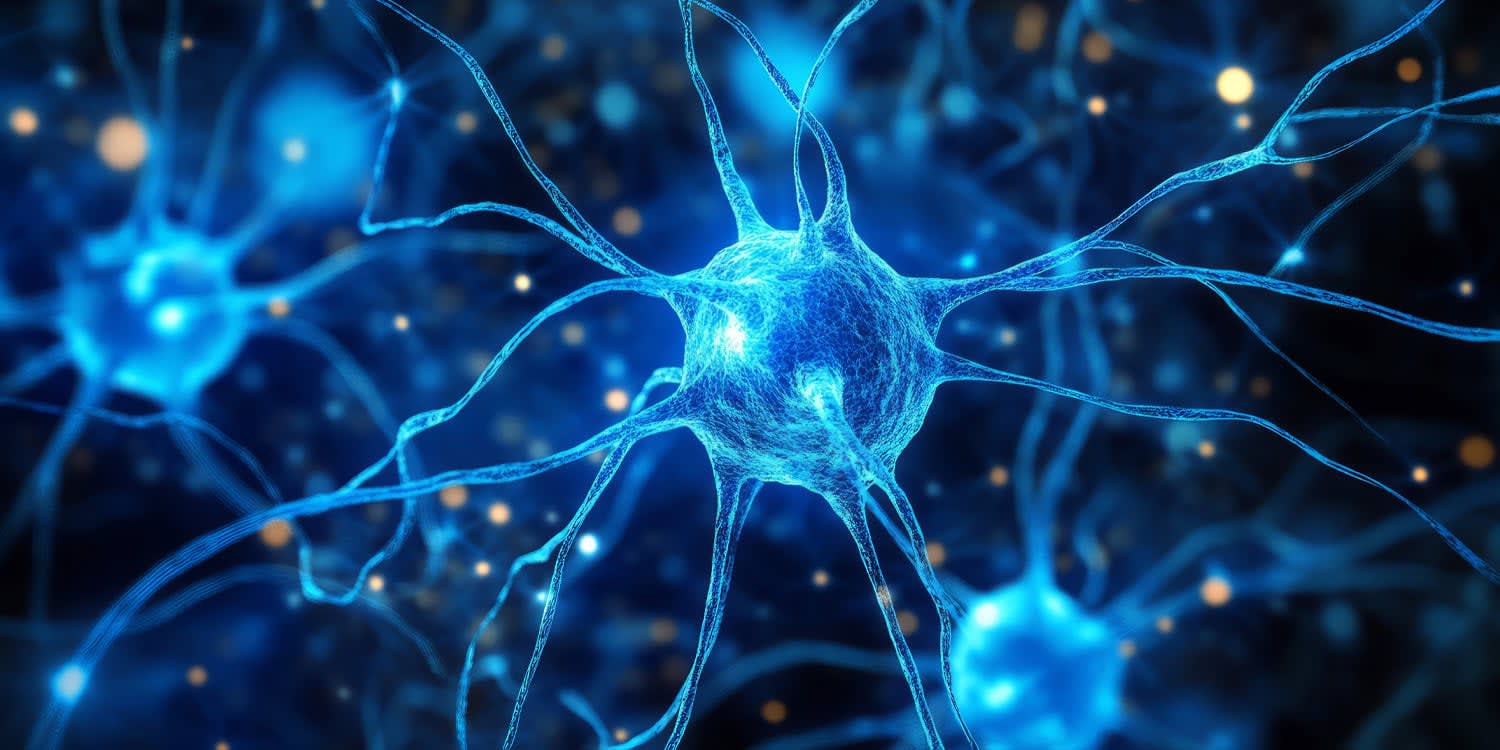Alzheimer's breakthrough: Sugar in neurons could be key link

A New Insight into Alzheimer’s Disease: The Role of Glycogen
A groundbreaking study has uncovered an unexpected factor in the progression of Alzheimer’s disease: glycogen, a complex sugar typically stored in muscles and the liver. Researchers have discovered that this substance accumulates abnormally in brain cells affected by Alzheimer’s and related tauopathies. This buildup may exacerbate neurodegeneration by interfering with cellular energy management and oxidative stress regulation. These findings, published in Nature Metabolism, suggest that targeting glycogen breakdown could offer new therapeutic strategies for dementia.
Alzheimer’s is a progressive neurological disorder that affects memory, cognition, and behavior. It is the most common cause of dementia among older adults, characterized by two primary biological features: plaques made of amyloid-beta protein and tangles composed of tau protein. These abnormalities disrupt normal cellular function, leading to inflammation, cell death, and brain atrophy over time.
Despite decades of research, effective treatments remain limited. Most drug development has focused on removing amyloid or tau from the brain, with only modest success. Scientists now believe that other factors—such as energy metabolism, inflammation, and oxidative stress—may significantly influence disease onset and progression.
“Alzheimer’s disease, first identified over a century ago, remains one of the most challenging neurodegenerative conditions,” said Pankaj Kapahi, a professor at the Buck Institute for Research on Aging. “While many clinical trials have targeted these aggregates, success has been limited.”
He added, “Interestingly, some individuals with these protein buildups show little cognitive decline, and not all with hereditary risk factors develop the disease. This has led scientists to consider other overlooked factors that might contribute to Alzheimer’s.”
Recent studies have also highlighted the role of diet and lifestyle in brain health. This sparked curiosity about whether dietary habits could influence the development of Alzheimer’s.
Glycogen serves as a storage form of glucose, a critical energy source. While the liver and muscles store most of the body’s glycogen, the brain contains only small amounts, primarily in astrocytes. Neurons were long thought to rely mainly on glucose from the bloodstream. However, recent research suggests that neurons may store more glycogen than previously believed, especially in disease states.
The Buck Institute researchers explored whether abnormal glycogen metabolism could be a hidden driver of Alzheimer’s and related tauopathies. They used fruit fly models and human stem cell-derived neurons to study tauopathies—diseases marked by tau protein accumulation. In their experiments, flies expressing human tau developed signs of neurodegeneration, such as shortened lifespans and brain cell death.
When comparing diets, the researchers found that low-protein, calorie-restricted diets extended lifespan in these flies. They also tested drugs and genetic modifications that promote glycogen breakdown. In parallel, they studied human neurons derived from induced pluripotent stem cells, including those with tau mutations linked to dementia.
The results showed that tau-expressing neurons accumulated large amounts of glycogen. This buildup appeared to be linked to the tau protein itself, which interacted with glycogen and prevented its breakdown. This created a toxic cycle: tau caused glycogen to accumulate, and the buildup worsened tau aggregation.
Restoring activity of an enzyme called glycogen phosphorylase (GlyP) had significant effects. In both flies and human neurons, breaking down glycogen reduced oxidative stress, lowered tau burden, and prevented cell death. It also extended the lifespan of tau-expressing flies by nearly 70%.
Rather than fueling energy production through glycolysis, the glycogen-derived glucose was diverted into the pentose phosphate pathway. This pathway produces antioxidants like NADPH and glutathione, which protect cells from damage caused by reactive oxygen species. Oxidative stress levels dropped sharply in cells with active glycogen breakdown.
Dietary restriction increased glycogen phosphorylase activity through signaling mechanisms involving cyclic AMP and protein kinase A. Drugs mimicking this pathway had similar effects, reducing cell death and extending lifespan. This may explain why diabetes medications like GLP-1 agonists show early promise in Alzheimer’s trials.
“Sugar metabolism in neurons is different from what was previously believed,” Kapahi explained. “Stored sugars in brain cells can help reduce harmful byproducts of metabolism. However, excessive accumulation can bind to toxic proteins and worsen the condition. We identified a pathway that breaks down this sugar buildup in neurons.”
Proteomic and metabolomic analyses supported these findings. The researchers found changes in metabolic and mitochondrial genes linked to diet, tau, and glycogen metabolism. Similar changes were observed in brain tissue from Alzheimer’s patients, including upregulation of enzymes involved in glycogen metabolism.
Using a fruit fly model, the team uncovered a link between diet and Alzheimer’s-like symptoms. Neurons in Alzheimer’s patients accumulated unusual amounts of glycogen, which may accelerate protein aggregation. Dr. Sudipta Bar, a postdoctoral researcher, found that neurons metabolize glycogen differently than other organs, suggesting a unique metabolic vulnerability in the brain.
While the results are promising, the study has limitations. Most experiments were conducted in fruit flies or lab-grown neurons, which do not fully replicate the human brain. More research is needed to confirm whether glycogen metabolism plays the same role in living patients.
It is also unclear whether glycogen accumulation causes or results from neurodegeneration, or whether it occurs early enough to serve as a therapeutic target. Long-term studies and clinical trials will be necessary to explore whether enhancing glycogen breakdown can slow cognitive decline.
The researchers plan to continue investigating how glycogen interacts with tau and other proteins, and whether certain diets or medications can modify this process. Their goal is to develop therapeutic strategies based on these findings.
“We would like to acknowledge the valuable contributions of several colleagues and collaborators who supported this study,” Kapahi said. “Our findings open exciting new avenues for Alzheimer’s research and potential therapies.”
Post a Comment for "Alzheimer's breakthrough: Sugar in neurons could be key link"
Post a Comment